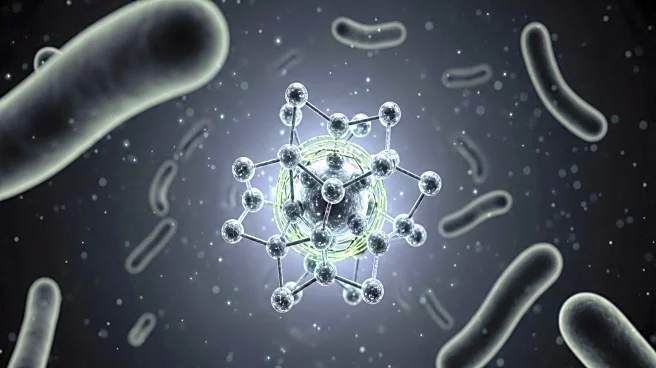What's Happening?
A new study has identified a host-directed adjuvant, KL1, that significantly enhances the efficacy of antibiotics against intracellular bacterial persisters. KL1 was found to resuscitate intracellular Staphylococcus aureus and improve antibiotic effectiveness across various methicillin-resistant and methicillin-sensitive strains. The compound does not promote bacterial growth or exhibit cytotoxicity, making it a promising candidate for treating infections with limited antibiotic options. The research highlights the potential of KL1 to modulate host cellular pathways, thereby increasing the susceptibility of bacterial persisters to antibiotics.
Why It's Important?
Intracellular bacterial persisters pose a significant challenge in treating infections, as they can survive antibiotic treatment and lead to chronic infections. The discovery of KL1 offers a novel approach to overcoming antibiotic resistance by targeting host pathways that influence bacterial survival. This could have profound implications for public health, particularly in the fight against antibiotic-resistant infections, which are a growing concern worldwide.
What's Next?
Further research is needed to understand the precise mechanisms by which KL1 enhances antibiotic efficacy and to evaluate its potential in clinical settings. Studies may also explore the application of KL1 in combination with other antibiotics to treat a broader range of bacterial infections. Clinical trials will be essential to determine the safety and effectiveness of KL1 in humans.
Beyond the Headlines
The development of host-directed therapies like KL1 represents a shift in the approach to treating bacterial infections, focusing on modulating host responses rather than directly targeting the bacteria. This strategy could lead to more sustainable and effective treatments, reducing the risk of developing antibiotic resistance.











